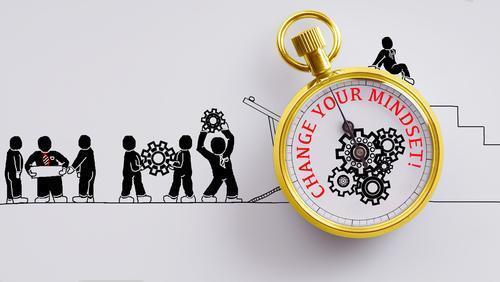
Understanding the Differences between Proactive vs. Reactive
Suppose you are driving fast a subcompact car and nearly approaching the intersection. You are about to turn to the left. As you slow down, you see a 10-wheeler truck approaching, about 60 meters away from the intersection, while you are just 10 meters away. What will you do? Are you going to stop then wait for the truck to do what it has to do and cause traffic that might delay other drivers behind you? Or are you going to make a signal to the left then go on with your driving since the traffic light allows you, and there’s enough space and time for you to make your turn? Definitely, you’ll choose the second option. Who would want to be the cause of traffic? In any case, you have to be a defensive driver. You have to be proactive.
Just like being a defensive driver, being a proactive person is having a quick response to situations. This is what this chapter intends to teach you. As you continue to read on, you will learn and understand the principle of proactive orientation and reactive orientation.
While we get to explore these orientations, we will realize how having one affects our perspective. In the same manner, we will be able to realize how to view this concept from the eyes of the kingdom of God and the church of God. What do you think is the difference between the champion or the first placer and the second placer of the game? The champion had seen the opportunities ahead of time that allowed him to prepare for it, while the second placer had just played the game based on how his opponent played it. The same difference exists between the proactive-oriented and the reactive-oriented. The proactive-oriented has the initiative. They anticipate the future. They prepare for tomorrow, thus making them not just responsible but response-able. On the other hand, reactive oriented only acts based on “now”. They respond based on how the situation they face, the environment they live, and the feelings they feel.
The dictionary tells us that a proactive person acts in advance to deal with an expected difficulty. Being proactive is being able to anticipate or to foresee the future. When we say “able to foresee”, it doesn’t mean that you have to be a fortune-teller. No, there’s no magic or power required to be proactive. It is a matter of perspective. It is a matter of how you see things and how you act based on what you can see even before something actually happens from it or through it. In other words, when you are a proactive person, you anticipate the events or occurrences. You anticipate the future.
Proactive have been noted as a choice based on values and principles. While a proactive orientation is based on our perspective, we still need to be intelligent in making the anticipation. We cannot simply say that “I foresee that tomorrow will be a sunny day” just because we want tomorrow to be sunny. We cannot make baseless conclusions based on baseless anticipations. That’s dangerous. When we anticipate the future, we need to have a solid foundation or a basis.
Like for example, when you are a driver, you anticipate the volume of traffic based on time, date, and weather. Through this, you will be able to decide which road and what route to take. The Bible said, “So prepare your minds for action. Control yourselves. Put your hope completely in the grace that will be given to you when Jesus Christ returns.”
[sc name=”Get Your Personal Prophecy”]












